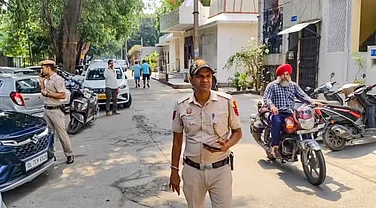In India, medical regulations for public healthcare services extend to the promise of free and accessible services for all citizens. However, regulations for the private sector are minimal in nature. The only attempt towards this direction has been to mandate hospitals to earmark and admit patients from the weaker sections of society along with medical concessions, which have been unsuccessful. Apart from this, there are minimal efforts made towards addressing issues of transparency and accountability in this sector.
The recent surge in COVID-19 cases in April-May 2021 exacerbated this problem further. Patients were denied admission to the hospital on the grounds of the non-availability of beds or other resources. In light of this, while a shortage of beds, medicines and other resources is a fact, it cannot be denied that administering patients and exhausting every possible measure to save lives is mandatory. Denial on the grounds of non-availability of beds by a public or private hospital violates the very essence of the right to life.
The Supreme Court of India (‘SCI’), in the landmark judgement Paschim Banga Khet Mazdoor Samiti v. State of West Bengal, held that denial of admission to hospital on the grounds of non-availability of services violates the Right to Health under the Right to Life, as part of Article 21 of the Indian Constitution. The Court laid down guidelines to ensure proper medical facilities, including a centralized communication system to track the availability of beds. This protection was extended against private hospitals in Pravat Kumar Mukherjee v. Ruby General Hospital on humanitarian grounds.
Based on the jurisprudence developed by the SCI, the Law Commission of India, in its 201st Report, proposed Draft Model Law to ensure medical care vis-à-vis accident survivors and women in labour. Extending the protection to every emergency care case, especially cases related to the epidemic is necessary. However, the model law on accident survivors and women in labour remains unenacted.
However, there is no law binding private hospitals to extend medical care. Owing to the absence of any such law, the Calcutta High Court in Prithvijoy Das v. State of West Bengal that no hospital can refuse to admit a COVID-19 patient if beds for such patients are available, stating it as one of the basic tenets of medical ethics. Accepting the non-availability of beds as a reason to deny medical aid during a pandemic can have immense repercussions and is indeed against the ratio of Paschim Banga case.
In the Court on its Motion v/s Union of India through its Secretary, the SCI has held that the obligation to provide adequate observation and treatment has been extended towards private doctors and healthcare professionals. Private healthcare professionals cannot refuse services during a pandemic, where their services are needed. Furthermore, responsibility for the municipal bodies and Task Forces around the country needs to be tightened to ensure people receive timely and adequate medical recourse.
Among other steps taken by High Courts in India, implementation of triage system at the hospital by Gujarat High Court (53/2021 WP No.) in suo moto petition provides for guiding principles during health care emergencies. Creation for triage is practised globally, where patients are dealt with according to their needs and emergency. Efforts by Gujarat HC led to the establishment of triage areas with separate beds in many hospitals. This should reflect in the government's policy during a public health emergency especially in states with a high number of cases.
Indian Medical Council (Professional Conduct, Etiquette and Ethics) Regulations, 2002 mandates that no physician can arbitrarily refuse treatment to a patient and imposes sanction on the physician rather than on the concerned hospital or clinic. This ought to be corrected as admission to the hospital is not the prerogative of a doctor/physician alone. It is the lack of appropriate policy towards public health which landed India in the position it is today.
As it is hopeful that the second wave declines, India must take this opportunity to address these three pertinent aspects, at a minimum: i) enactment of the model law for medical care under normal circumstances as well as during public health emergency; ii) improving and building upon a transparent, centralized system for availability of beds; iii) and detailed policy on medical triage to be adopted during while Epidemic Diseases Act, 1897 (India’s emergency provision for the pandemic) is in operation. This would be the first step in truly embracing the Right to Health embodied under Article 21.
















